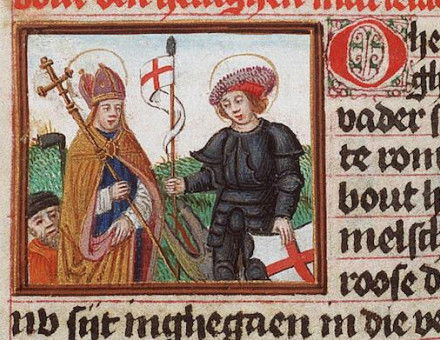Jordan Formally Annexes the West Bank
Richard Cavendish describes the events leading up to Jordan's annexation of the West Bank, on April 24th, 1950.
The Arab emirate of Transjordan was carved out of the Ottoman Empire by the British after the First World War. A region of desert and mountains, with its capital at Amman and its western border on the River Jordan separating it from Palestine, Transjordan was ruled by the Emir Abdullah, of the Hashemite family, the princes of Mecca, who traced their descent back to the Prophet himself through his daughter Fatima and her husband Ali. He was a brother of King Feisal of Iraq, and both of them had been involved with T.E. Lawrence in the Arab Revolt against the Turks. Afterwards Abdullah tried to persuade the British government to give him Palestine. He had to settle for Transjordan, but his appetite for the Arab territory west of the Jordan remained.
Though it suited him to be portrayed as a simple Bedouin chieftain, Abdullah was an astute character, of broad sympathies and great personal charm. He had grown up largely in a cosmopolitan environment in Istanbul, where he had been a member of the Turkish parliament, and his experience of politics had taught him to be a realist. He spoke fluent Turkish and more English than he allowed the English to know. In 1946 Transjordan became a kingdom, independent of Britain, and in the Arab-Israeli War of 1948 King Abdullah’s Arab Legion, trained and led by British officers, took the Jewish quarter of Old Jerusalem and seized control of the West Bank area on the western side of the Jordan, which included Jericho, Bethlehem, Hebron and Nablus. The kingdom now changed its name to Jordan. The annexation of the West Bank, which more than doubled Jordan’s population, was chewed over in talks with Israel which petered out in March 1950. In April Jordan held an election for a new parliament to represent both banks of the Jordan. It met on the 24th to hear a speech from Abdullah and pass a resolution affirming support for ‘complete unity between the two sides of the Jordan and their union into one state’ and formally incorporating the West Bank into the Hashemite Kingdom of the Jordan.
The arrangement was not to last. There were intense rivalries between the Arab states and leaders. Abdullah looked down on the Egyptians and was not on good terms with the Saudis. His belief in the possibility of living in peace with the Jews aroused fanatical hostility and in 1951 he was shot dead entering the Al-Aqsa Mosque in the Old City of Jerusalem by a Palestinian Arab. Warned beforehand of murder plots against him, he had answered with an Arabic proverb: ‘Until my day comes nobody can harm me, when the day comes nobody can guard me.’ He was succeeded by his son Talal and then by his grandson, King Hussein. Arab militants in Palestine refused to accept Jordanian rule and in 1964 founded the Palestine Liberation Organisation.




